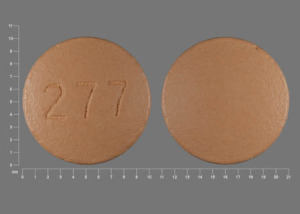Generic Januvia Availability
Last updated on Apr 10, 2025.
Januvia is a brand name of sitagliptin, approved by the FDA in the following formulation(s):
JANUVIA (sitagliptin phosphate - tablet;oral)
-
Manufacturer: MERCK SHARP DOHME
Approval date: October 16, 2006
Strength(s): EQ 25MG BASE [RLD], EQ 50MG BASE [RLD], EQ 100MG BASE [RLD]
Is there a generic version of Januvia available?
No. There is currently no therapeutically equivalent version of Januvia available in the United States.
Note: Fraudulent online pharmacies may attempt to sell an illegal generic version of Januvia. These medications may be counterfeit and potentially unsafe. If you purchase medications online, be sure you are buying from a reputable and valid online pharmacy. Ask your health care provider for advice if you are unsure about the online purchase of any medication.
See also: Generic Drug FAQ.
Related patents
Patents are granted by the U.S. Patent and Trademark Office at any time during a drug's development and may include a wide range of claims.
-
Phosphoric acid salt of a dipeptidyl peptidase-IV inhibitor
Patent 7,326,708
Issued: February 5, 2008
Inventor(s): Cypes; Stephen Howard et al.
Assignee(s): Merck & Co., Inc. (Rahway, NJ)The dihydrogenphosphate salt of 4-oxo-4-[3-(trifluoromethyl)-5,6-dihydro [1,2,4]triazolo[4,3-a]pyrazin-7(8H)-yl]-1-(2,4,5-trifluorophenyl)butan-2-- amine is a potent inhibitor of dipeptidyl peptidase-IV and is useful for the prevention and/or treatment of non-insulin dependent diabetes mellitus, also referred to as type 2 diabetes. The invention also relates to a crystalline monohydrate of the dihydrogenphosphate salt as well as a process for its preparation, pharmaceutical compositions containing this novel form and methods of use for the treatment of diabetes, obesity, and high blood pressure.
Patent expiration dates:
- November 24, 2026✓✓✓
- November 24, 2026
-
Phosphoric acid salt of a dipeptidyl peptidase-IV inhibitor
Patent 7326708*PED
Issued: February 5, 2008
Inventor(s): Cypes; Stephen Howard et al.
Assignee(s): Merck & Co., Inc. (Rahway, NJ)The dihydrogenphosphate salt of 4-oxo-4-[3-(trifluoromethyl)-5,6-dihydro [1,2,4]triazolo[4,3-a]pyrazin-7(8H)-yl]-1-(2,4,5-trifluorophenyl)butan-2-- amine is a potent inhibitor of dipeptidyl peptidase-IV and is useful for the prevention and/or treatment of non-insulin dependent diabetes mellitus, also referred to as type 2 diabetes. The invention also relates to a crystalline monohydrate of the dihydrogenphosphate salt as well as a process for its preparation, pharmaceutical compositions containing this novel form and methods of use for the treatment of diabetes, obesity, and high blood pressure.
Patent expiration dates:
- May 24, 2027✓
- May 24, 2027
More about Januvia (sitagliptin)
- Check interactions
- Compare alternatives
- Pricing & coupons
- Reviews (139)
- Drug images
- Side effects
- Dosage information
- Patient tips
- During pregnancy
- Support group
- FDA approval history
- Drug class: dipeptidyl peptidase 4 inhibitors
- Breastfeeding
- En español
Patient resources
Other brands
Professional resources
Other brands
Related treatment guides
Glossary
| Term | Definition |
|---|---|
| Drug Patent | A drug patent is assigned by the U.S. Patent and Trademark Office and assigns exclusive legal right to the patent holder to protect the proprietary chemical formulation. The patent assigns exclusive legal right to the inventor or patent holder, and may include entities such as the drug brand name, trademark, product dosage form, ingredient formulation, or manufacturing process A patent usually expires 20 years from the date of filing, but can be variable based on many factors, including development of new formulations of the original chemical, and patent infringement litigation. |
| Drug Exclusivity | Exclusivity is the sole marketing rights granted by the FDA to a manufacturer upon the approval of a drug and may run simultaneously with a patent. Exclusivity periods can run from 180 days to seven years depending upon the circumstance of the exclusivity grant. |
| RLD | A Reference Listed Drug (RLD) is an approved drug product to which new generic versions are compared to show that they are bioequivalent. A drug company seeking approval to market a generic equivalent must refer to the Reference Listed Drug in its Abbreviated New Drug Application (ANDA). By designating a single reference listed drug as the standard to which all generic versions must be shown to be bioequivalent, FDA hopes to avoid possible significant variations among generic drugs and their brand name counterpart. |
Further information
Always consult your healthcare provider to ensure the information displayed on this page applies to your personal circumstances.

